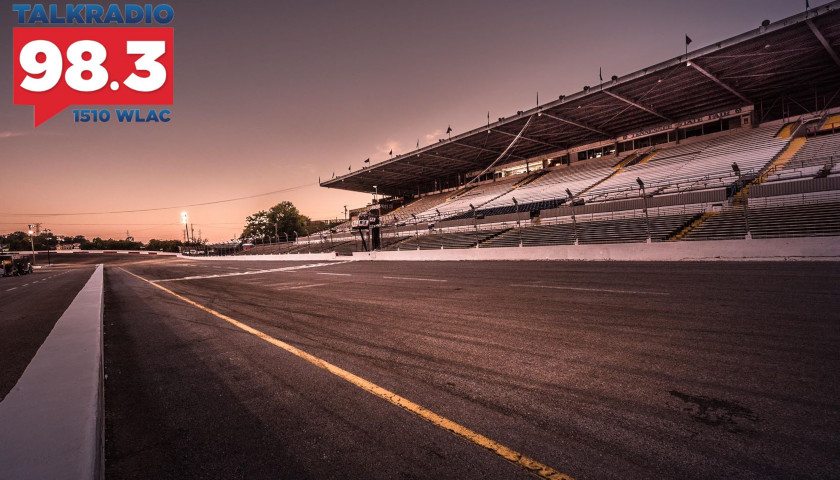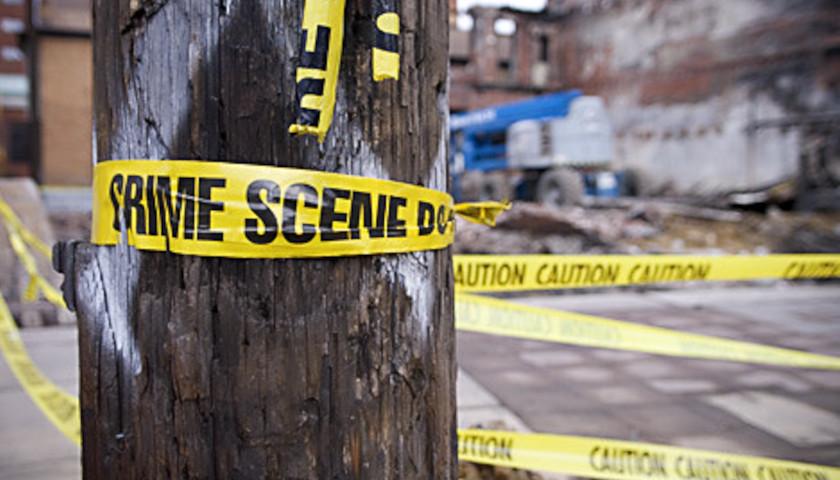Live from music row Friday morning on The Tennessee Star Report with Michael Patrick Leahy – broadcast on Nashville’s Talk Radio 98.3 and 1510 WLAC weekdays from 5:00 am to 8:00 am – Leahy was joined in studio by all-star panelist, Attorney Jim Roberts from Nashville to talk about his background as a conservative in law and how he aims to help serve the taxpayers.
Towards the end of the segment, Roberts explained the current Nashville fairground lawsuit and described it’s the lawful function as described by the Metro charter. He went on to add that the fairgrounds are at danger from being pieced out and sold to private developers. ‘ What they’re trying to do is give away the fairgrounds one piece at a time. Carve it into little pieces and destroy what’s going on out there. Destroy racing. Destroy flea markets. Everything’ said, Roberts.
Leahy: We have a new member of our all-star panel. Attorney Jim Roberts. Welcome, Jim.
Roberts: Good morning. Good morning. Thank you for having me here.
Leahy: Well Jim, tell us a little bit about a particular issue we want to talk about. But first I want to say something nice about you. We’ve actually met several times in the course of being active politically. But I came to know you best back in 2018 when you were involved in a meeting of the Davidson county election commission when they were trying to kind of violate the charter when a new Mayor had to be named.
And they wanted to hold the election in August when the charter is very clear that it should be held in May. We met and I thought this guy knows what he’s talking about.
Roberts: That was a very interesting time. Unfortunately, the election commission was committed to doing things the wrong way. And I just felt like I had to go down there and point it out to them and say, ‘Look, you’re heading down the wrong path here.’
They didn’t care they did it anyway of course and were sued for it. And eventually, they were proven wrong. I was trying to save the taxpayers some money back in those days.
Leahy: Yeah. And had they followed your advice, it’s very interesting if you look at this. You know former Mayor Barry resigned in disgrace I think in March of 2018. Somewhere around then, February or March. And the Davidson county election commission then met to determine, according to the charter when the special election would be held.
It was very clear that it needed to be held within 90 days. But they wanted to do it in August for some obscure political reason. They thought it would be more advantageous, I think to Mayor Briley at the time. I don’t know exactly why. But the law was very clear about that it had to be held.
The other problem going on at that time is that the transit vote, the referendum was scheduled for May second. It would have made a lot of sense to hold both elections on May second.
Roberts: Absolutely. And that’s why they didn’t want to do it. What they were hoping with that transit vote was to have a low turnout. A lot of mischief can be passed when you have low turnouts because you get certain groups with axes to grind to show up.
And they knew if the Mayoral race was on that day that there would be a large turnout. And they new fundamentally that a large majority of people in this city were against that very terrible transit plan. They showed up anyway and shot it down pretty heavily.
Leahy: And had they listened to you, the taxpayers would have saved an extra two million. The Mayor’s race was held three weeks later. Another two million bucks in it. It went all the way up to the state Supreme Court.
Roberts: That’s right. There were some other issues involved of what the definition of a general election was that sort of took things on a tangent. But in the end, we wasted. And that’s the only word to use, wasted. Hundreds and hundreds of dollars because somebody wanted a better chance at being Mayor.
Leahy: As an attorney, you’ve had several election lawsuits. You know a lot about local issues. We’re going to talk about the fairground here in a second. Your background is the University of Virginia?
Roberts: University of Virginia undergrad. Vanderbilt Law School.
Leahy: OK. You have gone to the bastions (Roberts chuckles) of liberal thought here and you’ve turned out to be a conservative. How does one actually accomplish that?
Roberts: Well you know it’s funny. They refer to Vanderbilt as a conservative law school because we have more than five conservatives in the law school at any given time. (Leahy laughs) I always thought that was hilarious. No, it’s just this as liberal as of any other law school.
To be a conservative in law school is about being committed to the constitution and the rule of law which makes you a conservative. Holding an idea that we actually have standards in our society that we have to follow puts in the conservative group whether you want it or not.
Leahy: Exactly. And you know the problem with the law schools today is they’re all a bunch of activists that are trying to accomplish political objectives and aren’t really paying attention to the constitution and the rule of law. At least that’s my view.
Roberts: They teach you more about how to get around the constitution than how to follow the constitution.
Leahy: That’s a very good point. I’ve thought that often and you just articulated it. Apparently there’s another lawsuit that I want to hear about what you’re involved in. The fairgrounds. Give us a brief synopsis of it and then we’ll come into the details after the break.
Roberts: You have to understand what the fairgrounds is. It is the only piece of property in Davidson county that’s protected by the Metro charter. And our Metro charter is like our constitution. So it is a very special piece of property. And it is required to be used to raise money to hold a state fair. That’s what it does. That’s it’s purpose.
Leahy: It’s in the charter?
Roberts: It’s in the charter. It’s in state law. And that state law was adopted by the charter and it’s never been changed. In fact, it’s been strengthened. That’s what the fairgrounds are for. What they’re trying to do is give away the fairgrounds one piece at a time. Carve it into little pieces and destroy what’s going on out there. Destroy racing. Destroy flea markets. Everything.
(Commercial break)
Leahy: So, talk about the fairgrounds which you have described a little bit about the legal standard and the legal authorization for the fairground which is very solid in the charter. A very specific state law. The particular use of the fairgrounds is very defined, right?
Roberts: Absolutely. The fair board which governs and controls the fairgrounds property is constrained by very clear mandates of what they can and cannot do with the property. And when they began talking about putting a stadium out there. When they began talking about giving away part of the property for a private developer to make millions of dollars.
Leahy: Was that in the charter that you can give it away?
Roberts: Not only is it not in the charter, but it’s prohibited by the charter.
Leahy: Just for our audience, about how many acres constitute the fairgrounds?
Roberts: Roughly about 120 acres. Some of it’s usable, some of it’s not. But that’s basically the amount.
Leahy: 120 acres. And where specifically are the fairgrounds located?
Roberts: They’re on Smith Avenue, basically just south of the city. South of Fort Negley park where the race track is. It’s 625 Smith Avenue I think. but I’m not sure if that’s very helpful.
Leahy: And if you want to get there what route do you take from downtown to get there? Would you take highway 40?
Roberts: You go out Nolensville Road. Or you can take I-65 South to the Harding Road exit and cut over from there.
Leahy: OK.
Roberts: So it’s not very far. It’s pretty much a downtown area and that’s why it’s so desirable.
Leahy: So tell us about how it’s governed. And so it’s owned by the city? And how is it governed?
Roberts: In 1923 the state passed an act to create a fair board. So we have a fair board that governs this property.
Leahy: How many people on the fair board?
Roberts: Five currently.
Leahy: Are they elected or appointed?
Roberts: They are appointed. And they are approved by the Metro Council.
Leahy: Appointed by the Mayor.
Roberts: I believe that’s correct. Yes.
Leahy: And approved by the council.
Roberts: Correct.
Leahy: So there are five members on it now. Do they serve a term of four years?
Roberts: Honestly, I don’t know.
Leahy: But they serve a term for a period of time.
Roberts: Correct.
Leahy: OK. So we have a five-member fair board. How do they get into trouble?
Roberts: Well, you have to understand that this is a deeply involved in the political aspects of Nashville. And about 10 years ago, Mayor Karl Dean decided that he wanted to re-develop the fairground.
Leahy: You know my nickname for him?
Roberts: No.
Leahy: Karl ‘Marx’ Dean. (Leahy laughs)
Roberts: Well he just decided he wanted to destroy the fairgrounds. He didn’t say it that way. But he began soliciting people to develop that entire property. He was going to end it.
Leahy: Let’s go back to Karl Dean. There’s a charter that says it’s got to be used for these purposes in perpetuity. And it’s definitely going to be used for those purposes. Why did he decide that he wanted to destroy the 120-acre fairgrounds?
Roberts: It’s funny how little people know about the history of the fairgrounds. In part of this lawsuit, we’ve done an amazing amount of research. And there was an incorrect belief that there was a 99-year lease on the property and that it was going to terminate in 2009 or 2010 and somehow the ownership would change. It didn’t but they thought that.
Leahy: So the common belief was that there was a lease from the city to the fairgrounds board? Was that the belief?
Roberts: It really was a belief that the city was leasing the property. It was almost more like mythology than actual fact. There’s just a lot of misinformation out there.
Leahy: That the city was leasing the property from a private individual?
Roberts: No. Unfortunately, it’s a longer discussion than you want to have. It’s really just that there was a belief that after 2009 that might not have to have a state fair out there again. They were wrong. Metro legal are good folks but they have a tendency to assert the position of the powers that be. And they don’t tend to have a lot of independent legal theories out there.
And they did whatever Karl Dean said and Metro legal backed him up. But the idea was that they were going to destroy the fairgrounds and we’re going to develop the fairgrounds. And I know this because I have seen actual architectural drawings of redevelopments of the fairgrounds that people I know have done and never were released to the public.
Leahy: So this is a violation of the law?
Roberts: Absolutely.
Listen to the full second hour:
– – –
Tune in weekdays from 5:00 – 8:00 am to the Tennessee Star Report with Michael Patrick Leahy on Talk Radio 98.3 FM WLAC 1510. Listen online at iHeart Radio.
Photo “Fairgrounds Speedway Nashville” by Fairgrounds Speedway Nashville.






Just follow the money trail.